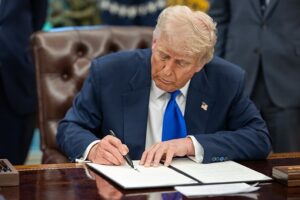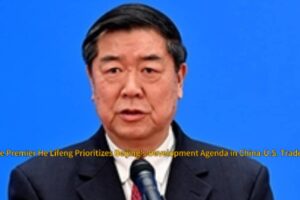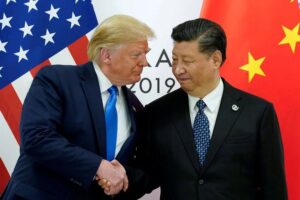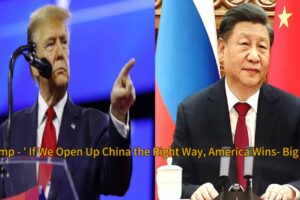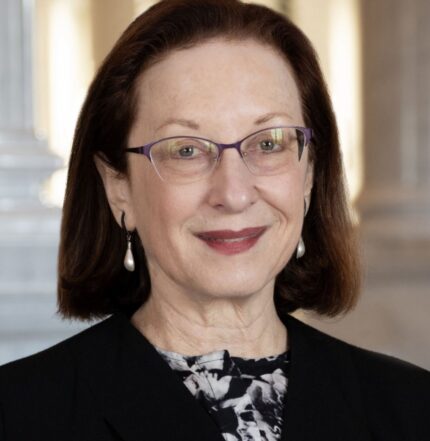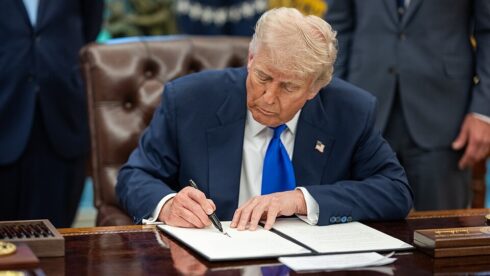The Trump administration has dismissed Shira Perlmutter, the Register of Copyrights and head of the U.S. Copyright Office, in a move that has stunned Washington and ignited a fierce political debate. Two sources familiar with the matter confirmed to Opitanglobamedia News on Saturday that Perlmutter was fired days after her office issued a report scrutinizing artificial intelligence (AI) and its use of copyrighted materials in generative training models.
Perlmutter, who was appointed in October 2020 during Trump’s first term, had served as the nation’s top copyright official for nearly five years. Her removal follows the sudden termination of Librarian of Congress Carla Hayden just two days earlier, signaling what critics say is an orchestrated reshaping of federal institutions central to intellectual property oversight.
AI Copyright Concerns Spark Political Controversy
Perlmutter’s ouster came shortly after the Copyright Office released Part Three of a multi-part report on AI and copyright law. The document raised pointed concerns over how copyrighted data is being used by AI developers to train generative models, stating, “It is an open question… how much data an AI developer needs, and the marginal effect of more data on a model’s capabilities.” The report noted growing division within the tech and legal communities over whether more data leads to better or fairer AI outputs.
This cautious tone reportedly frustrated senior administration figures and some powerful industry players. Perlmutter’s refusal to endorse what critics are calling a pro-industry, pro-AI stance may have triggered her removal. Democratic Rep. Joe Morelle of New York called the firing “a brazen, unprecedented power grab with no legal basis” and linked it directly to her resistance to billionaire Elon Musk’s reported efforts to access copyrighted works for AI development.
Elon Musk’s Shadow Looms Over the Firing
The fallout has intensified with speculation that Elon Musk, who owns xAI and previously attempted to buy OpenAI, may have influenced the Trump administration’s decision. Musk has publicly criticized intellectual property laws, calling for their abolition in an April post on his platform X. Observers say Perlmutter’s unwillingness to provide xAI open access to copyrighted data may have placed her at odds with influential allies of the Trump administration.
Rep. Morelle’s statement further claimed that “there is surely no coincidence he [Trump] acted less than a day after she refused to rubber-stamp Elon Musk’s efforts.” While the White House has yet to issue an official comment, the timing of the dismissal and Musk’s increasing role in the AI policy space are raising questions about potential corporate influence over government decisions.
Trump’s AI Push and Strategic Reshuffling

President Trump has positioned AI at the core of his economic and innovation agenda. Shortly after assuming office this year, he unveiled a sweeping $500 billion private-sector initiative to build America’s AI infrastructure in partnership with OpenAI, Oracle, and SoftBank. Critics argue that the administration’s aggressive pro-AI posture risks sidelining necessary legal and ethical checks, particularly around copyright protections and intellectual property rights.
The firing of both Carla Hayden and now Shira Perlmutter appears to reflect a broader effort to place key federal agencies in alignment with Trump’s vision for AI development. Some experts warn that this could lead to a deregulated environment where powerful corporations face fewer constraints when exploiting creative content to train AI systems.
Implications for the U.S. Copyright Office and Creative Sector
The U.S. Copyright Office, housed under the Library of Congress, employs over 450 staff and plays a vital role in managing the nation’s copyright registration and law enforcement. Perlmutter’s departure leaves a leadership vacuum at a time when the Office is grappling with some of the most consequential legal questions of the AI era.
Creative professionals, legal scholars, and tech watchdogs have voiced alarm over the developments. Many fear the Trump administration’s actions signal a willingness to undermine long-standing copyright protections in favor of technological advancement driven by corporate interests. With a new appointee expected soon, the direction of copyright law in relation to AI will likely become a central issue in both political and legal arenas in the coming months.


